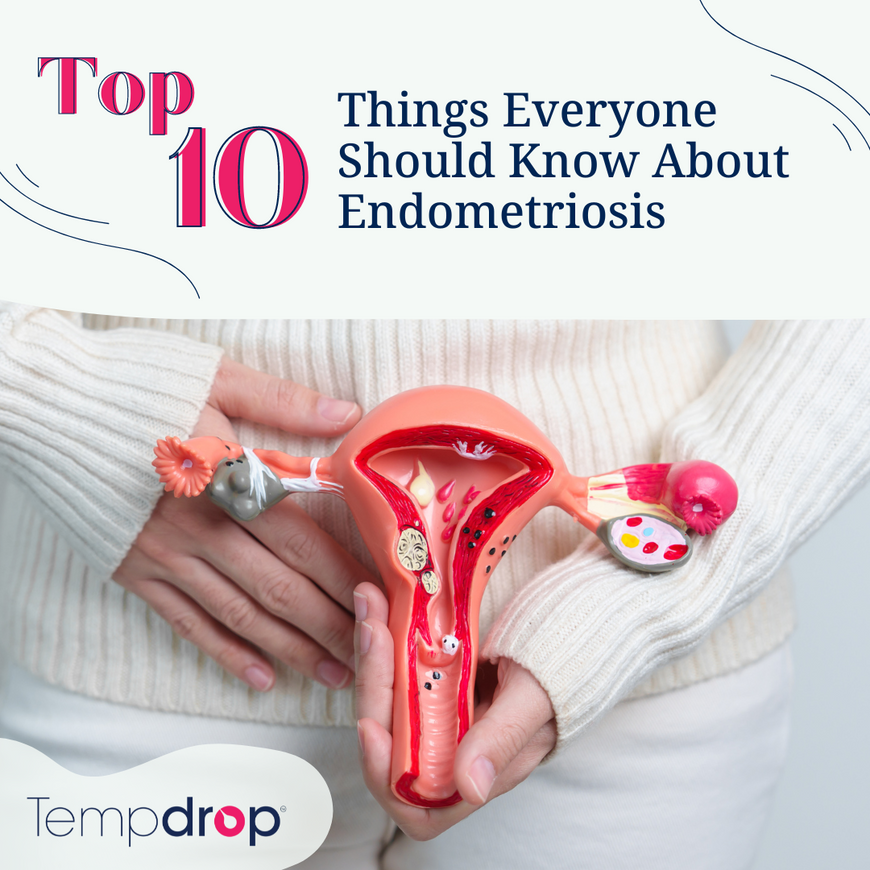March is Endometriosis Awareness Month, highlighting a condition which, according to WHO, affects an estimated 10% of reproductive-aged individuals worldwide.
We've put together 10 Q&A's we believe everyone should know about endometriosis. We want you to have the knowledge and awareness to help empower, support, and comfort those affected.
1. What is Endometriosis?
Endometriosis is a chronic condition where tissue, similar to the lining of the uterus, grows outside the uterus, causing inflammation, pain, and potentially fertility issues.
2. What causes Endometriosis?
The simple answer is doctors aren't certain. Current research suggests that endometriosis is present at birth, rather than being a condition starting sometime after birth. That means it’s likely either genetic or develops in utero (or a combination).
3. What are the symptoms of endometriosis?
Recognizing symptoms is key. Common signs include pelvic pain, heavy periods, painful intercourse, and infertility. However, symptoms can vary widely among individuals and some women may have no symptoms at all.
4. How long does it take to get a clinical diagnosis of endo?
It takes an average of 6-10 years to get a diagnosis of endometriosis. Laparoscopic surgery remains the gold standard for definitive diagnosis, although non-invasive diagnostic tools are being researched.
5. What impact does endometriosis have on conception?
Endometriosis can affect fertility, with approximately 30-50% of individuals with the condition experiencing infertility.
6. What are the treatment options for endometriosis?
There are a number of treatment options available, including excision surgery, lifestyle changes and holistic therapies, pain management and hormonal therapies such as bioidentical progesterone.
7. Do hormonal therapies work?
8. Will having a hysterectomy cure endometriosis?
9. Is there a lot of research and support for endometriosis?
10. Does endometriosis just give you physical symptoms?
Education and advocacy are crucial for raising awareness, reducing stigma, and improving healthcare outcomes for women with endometriosis. Stay informed, share resources, and advocate for better care.
For more information, explore our endometriosis resources on our website: Guides and Articles.
If you are a clinician reading this article, you can also access our clinician resources on our website - we have guidance for endometriosis patients within this section of our website.
The information provided in this blog article is intended for general knowledge and discussion purposes only and should not be construed as medical advice. Readers are encouraged to seek personalized medical advice from a qualified healthcare professional for any specific concerns or conditions.

